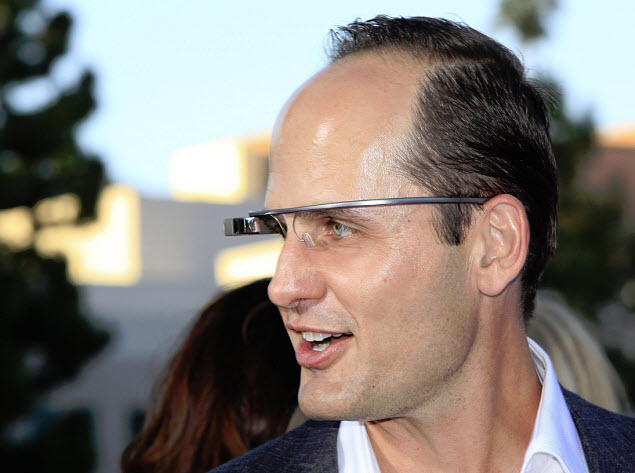Newborns that have been moved into the intensive care unit can still be watched by their mothers.
A hospital in the United States is going to begin using Google Glass to make it possible for new moms to remain in contact with their newborns when the babies have been transferred to an intensive care unit (ICU).
This has been designed as a wearable technology experiment that is occurring within the Boston hospital.
The pilot is being conducted in Boston’s Brigham & Women’s Hospital, according to a report from one of the top Google Glass enthusiast websites, which is called Glass Almanac. The idea for this experiment using the wearable technology was first raised by Stephanie Shine, a nurse at the hospital whose own baby had to stay in the ICU for a total of 101 days. It is common for babies to be sent to ICU for certain amounts of time when either the mother or the baby (or both) is in need of immediate care. However, throughout that time, the mother and baby are primarily separated.
The Google Glass experiment allows participating mothers to view streaming images of their babies.
 To do this, participants that visit the ICU can use the wearable technology and the images that they see will be streamed live to tablets that are given to the mothers. Therefore, the mothers will be able to view the video of their babies when the participating nurses visit their babies.
To do this, participants that visit the ICU can use the wearable technology and the images that they see will be streamed live to tablets that are given to the mothers. Therefore, the mothers will be able to view the video of their babies when the participating nurses visit their babies.
Certainly, watching video over a tablet computer is not the same as actually seeing and holding the baby in person, but it is far superior to the separation that is currently occurring. This also gives the mother the opportunity to be able to hear the nurses as they discuss the baby, while it also provides her with the chance to ask questions. It gives the mother the virtual experience of being in the room.
The purpose of the experiment is to discover whether or not using Google Glass can help to ease the stress that is felt by a mother when she is required to be separated from her new baby.
A surgeon in Nashville is looking into the various benefits that can be brought to an O.R. by the augmented reality headset.
A Nashville surgeon is currently investigating some of the ways in which his wearing Google Glass while in the operating room will be able to benefit him – as a surgeon – as well as the patient.
This augmented reality headset has been greatly embraced by the medical community.
Despite the fact that Google Glass is still in a limited release phase, the doctors and others in the medical community have been coming up with a large range of different potential uses for these and similar augmented reality devices. Although the public has had mixed responses to the devices, doctors appear to be ready to wear them and discover what they can offer in terms of efficiency, accuracy, and other potential benefits.
A company in Nashville is now taking the use of Google Glass in hospitals to the next level.
 Octovis Inc. believes that there could be massive implications for the augmented reality technology in health care. It is now undergoing its “14-week startup boot camp” along with another company based in Nashville, Jumpstart Foundry, which is a business accelerator. This project is meant to test some of the various applications for the mobile technology among a handful of physicians.
Octovis Inc. believes that there could be massive implications for the augmented reality technology in health care. It is now undergoing its “14-week startup boot camp” along with another company based in Nashville, Jumpstart Foundry, which is a business accelerator. This project is meant to test some of the various applications for the mobile technology among a handful of physicians.
Sanat Dixit, one of the participating physicians, is a neurosurgeon who has been working within the region for four years. He has now become the first doctor in Tennessee to bring the augmented reality device into the operating room. Moreover, he is also one of the only doctors in the entire Southeast to actually use this cutting edge mobile tech for professional reasons.
While the doctor is not permitted to reveal the name of the hospital in which surgeries have now been performed while using Google Glass – as the facility has yet to create an official policy regarding the use of this technology and wants to ensure that the privacy of its patients remains protected – what is known is that at least two procedures have been completed and it looks as though other facilities will soon be discussing similar efforts in the not too distant future.
 To do this, participants that visit the ICU can use the wearable technology and the images that they see will be streamed live to tablets that are given to the mothers. Therefore, the mothers will be able to view the video of their babies when the participating nurses visit their babies.
To do this, participants that visit the ICU can use the wearable technology and the images that they see will be streamed live to tablets that are given to the mothers. Therefore, the mothers will be able to view the video of their babies when the participating nurses visit their babies.
 Octovis Inc. believes that there could be massive implications for the
Octovis Inc. believes that there could be massive implications for the 